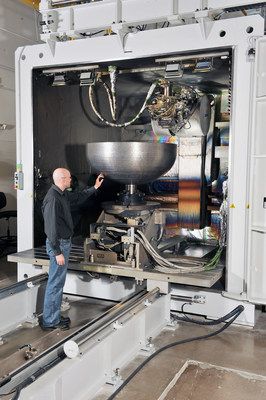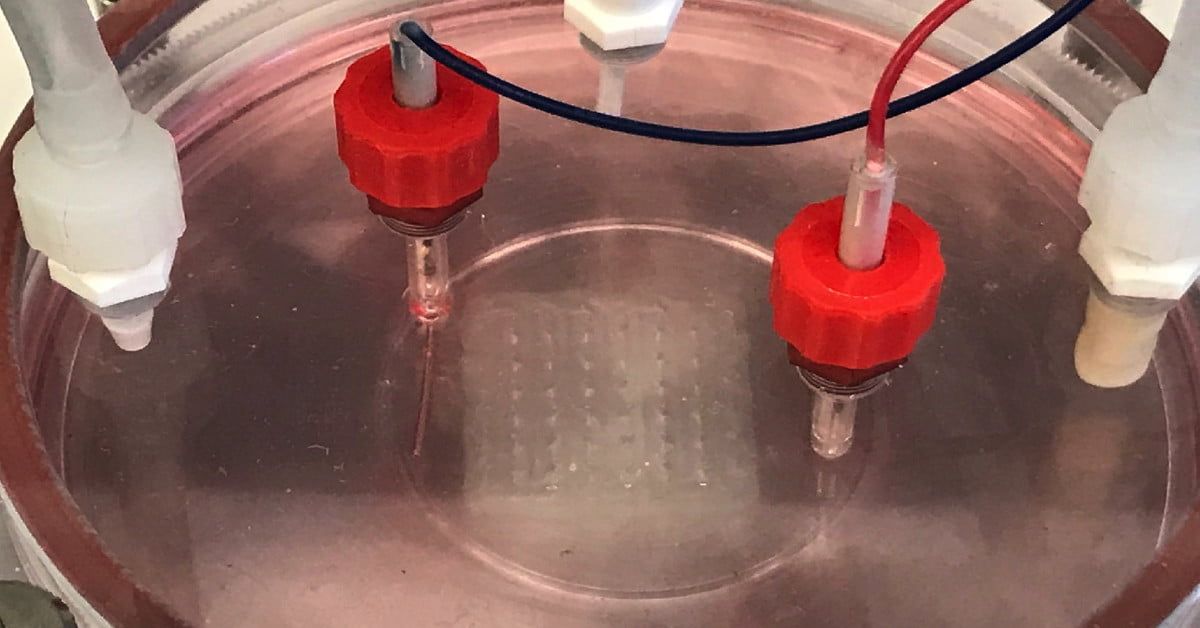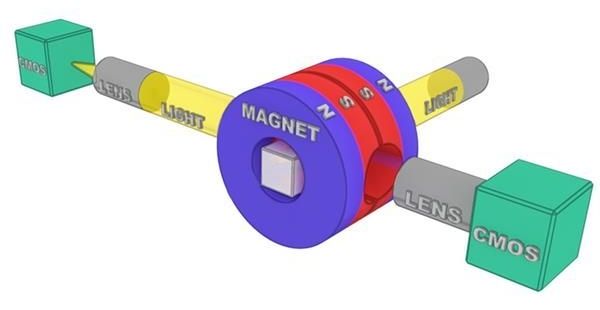DENVER, July 11, 2018 /PRNewswire/ — Lockheed Martin (NYSE: LMT) has embraced a 3D printed titanium dome for satellite fuel tanks so big you can’t even put your arms around it. The 46-inch- (1.16-meter-) diameter vessel completed final rounds of quality testing this month, ending a multi-year development program to create giant, high-pressure tanks that carry fuel on board satellites.
The titanium tank consists of three parts welded together: two 3D printed domes that serve as caps, plus a variable-length, traditionally-manufactured titanium cylinder that forms the body.






